
ERP Implementations Exceed Budgets, Schedules
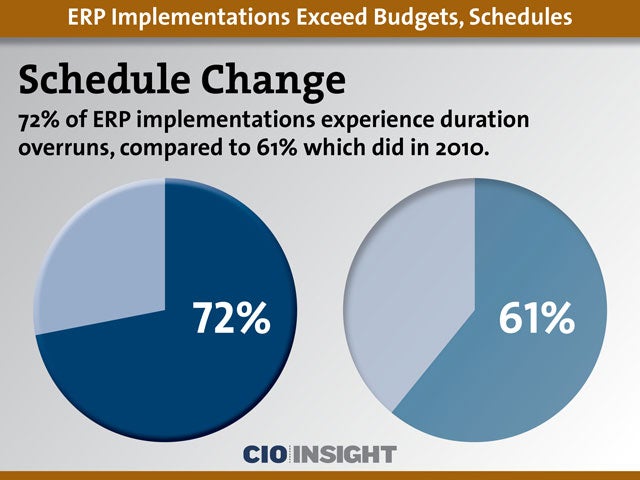 Schedule Change
Schedule Change
72% of ERP implementations experience duration overruns, compared to 61% which did in 2010.
 Footloose Fiscals
Footloose Fiscals
54% exceed their planned budgets, which is actually down from 74% in 2010.
 Diminishing Returns
Diminishing Returns
66% of organizations gain no more than one-half of the anticipated benefits of their ERP implementations, compared to 48% which did in 2010.
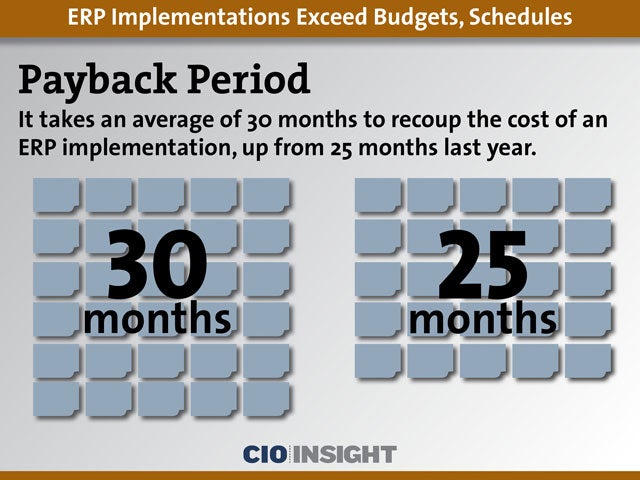 Payback Period
Payback Period
It takes an average of 30 months to recoup the cost of an ERP implementation, up from 25 months last year.
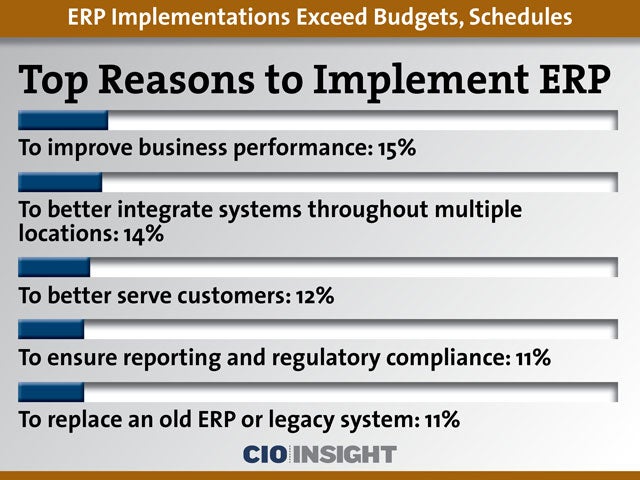 Top Reasons to Implement ERP
Top Reasons to Implement ERP
To improve business performance: 15%, To better integrate systems throughout multiple locations: 14%, To better serve customers: 12%, To ensure reporting and regulatory compliance: 11%, To replace an old ERP or legacy system: 11%
 Thumbs Up
Thumbs Up
More than half of survey respondents are satisfied with the overall software functionality of their ERP implementation, as well as the software’s ability to meet business needs.
 Thumbs Down
Thumbs Down
About one-third are dissatisfied with both the implementation services and documentation practices of their vendors.
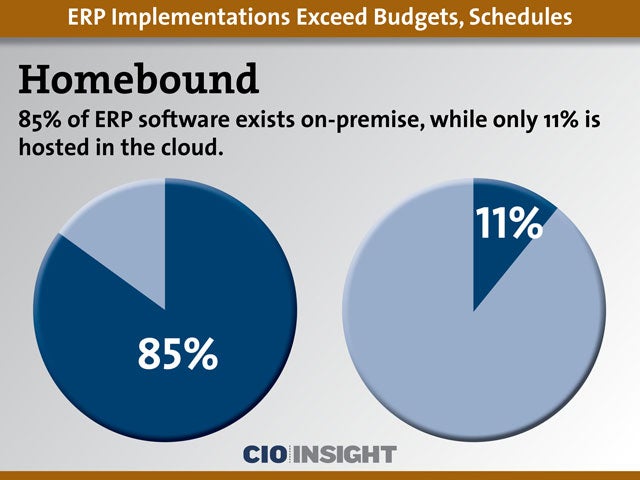 Homebound
Homebound
85% of ERP software exists on-premise, while only 11% is hosted in the cloud.
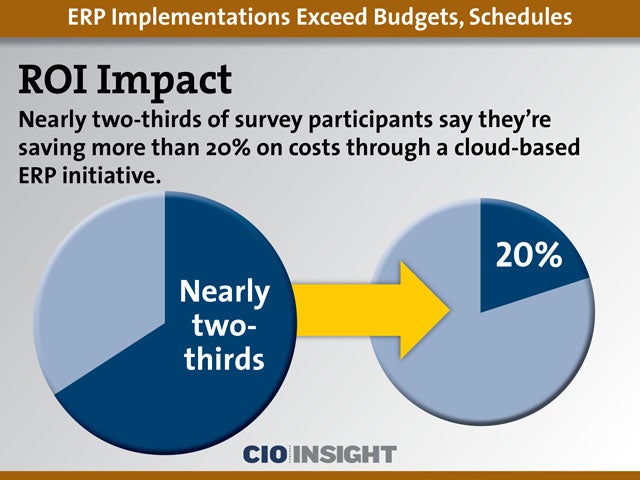 ROI Impact
ROI Impact
Nearly two-thirds of survey participants say they’re saving more than 20% on costs through a cloud-based ERP initiative.
 Top Consulting Needs of Organizations Pursuing ERP
Top Consulting Needs of Organizations Pursuing ERP
ERP implementation: 21%, Training: 19%, Change management: 14%, Software selection: 11%, Contract negotiation: 9%